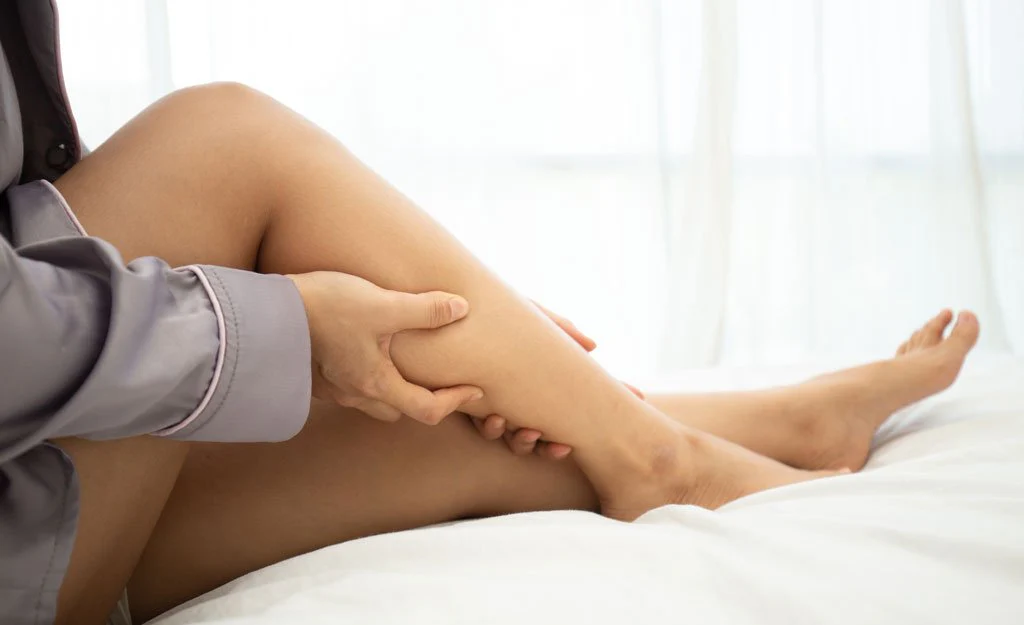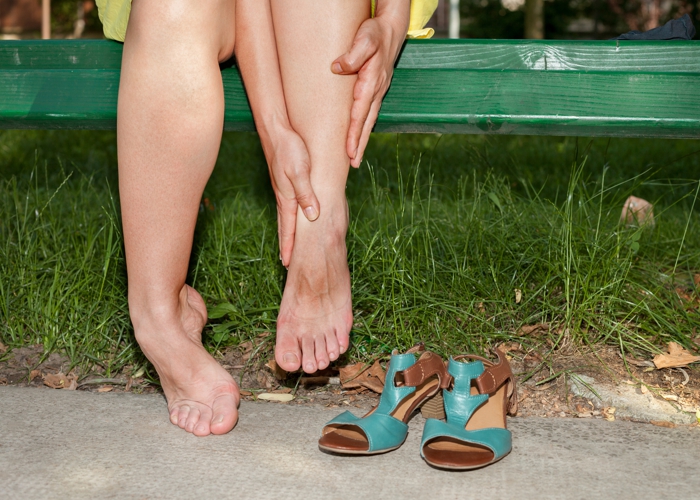Water retention during menopause is a common issue that many women face, caused by hormonal fluctuations that affect the body’s fluid balance. This uncomfortable condition can lead to swelling in the hands, feet, and legs, making daily activities challenging. In this post, we share the various effective strategies to manage and reduce water retention during menopause. From dietary changes to lifestyle adjustments, find out how you can alleviate these symptoms and improve your overall comfort during this transitional phase.

Contents
How Do I Get Rid Of Water Retention During Menopause?
Water retention during menopause can be uncomfortable and frustrating, but there are several effective strategies to help manage and reduce these symptoms. Here are some practical tips:
1. Reduce Salt Intake
Excessive salt in the diet can lead to water retention. Try to limit your sodium intake by avoiding processed foods and adding less salt to your meals. Opt for herbs and spices to enhance flavor without the extra sodium.
2. Increase Water Consumption
It might seem counterintuitive, but increasing your water intake can actually help your body retain less water. Drinking adequate amounts of water helps to flush out excess sodium and toxins from the body. Aim for 8-10 glasses of water a day.
3. Exercise Regularly

Physical activity can help improve circulation and reduce fluid buildup, especially in the legs and ankles. Activities like walking, swimming, and yoga are particularly beneficial and can also help manage other menopause symptoms such as weight gain and stress.
4. Monitor Your Diet
Focus on eating a balanced diet rich in fruits, vegetables, whole grains, and lean proteins. Some foods, like cucumber, celery, and asparagus, are natural diuretics that can help reduce water retention. Additionally, foods rich in potassium, such as bananas and spinach, can help balance sodium levels in your body.
5. Avoid Refined Carbohydrates
Eating foods high in sugar and refined carbs can cause rapid spikes in blood sugar and insulin levels, leading to increased sodium retention and water weight. Limit your intake of sweets, white bread, and pastas.
6. Consider Herbal Remedies
Some herbs are known for their diuretic properties and can aid in reducing water retention. Dandelion root, green tea, and hibiscus are popular choices that can be consumed as teas.
7. Wear Compression Garments
Compression stockings or socks can be effective in reducing swelling in the legs and ankles. These garments help improve blood flow and prevent the accumulation of fluid.
8. Manage Stress
Stress can impact hormonal balance and contribute to water retention. Techniques like meditation, deep breathing, or tai chi can help reduce stress levels.
9. Consult with a Healthcare Provider
If your water retention is severe or persistent, it may be wise to consult with a healthcare provider. They can rule out other potential causes of swelling and may recommend medications or supplements if necessary.
10. Elevate Your Legs
When resting, try elevating your legs above the level of your heart. This can help reduce swelling by improving venous return and fluid redistribution.
What Causes Water Retention?
Water retention, also known as edema, occurs when your body holds onto excess fluid instead of flushing it out. This can lead to swelling, usually in the ankles, feet, and legs.

Several factors can contribute to water retention:
- Medical Conditions: Certain medical conditions like congestive heart failure, liver disease, and kidney disease can impair the body’s ability to eliminate fluids.
- Hormonal Fluctuations: Hormonal changes during menstruation, pregnancy, and even menopause can trigger water retention.
- Medications: Some medications, including corticosteroids, nonsteroidal anti-inflammatory drugs (NSAIDs), and some high blood pressure medications, can cause water retention as a side effect.
- Lifestyle Factors: Certain lifestyle habits can also contribute to water retention. These include:
- Diet: Consuming excessive sodium and inadequate amounts of protein and potassium can lead to water retention.
- Inactivity: Sitting or standing for extended periods can cause fluid to pool in the legs and ankles.
- Tight Clothing: Wearing restrictive clothing can impede circulation and contribute to swelling.
Frequently Asked Questions
What are the water pills for menopause?
Water pills, also known as diuretics, are often used to combat water retention during menopause. These help the body shed excess water, relieving symptoms like swelling and weight gain. Some diuretics, like hydrochlorothiazide (Microzide) and spironolactone (Aldactone), are available either over the counter or by prescription.
Does menopause bloating ever go away?
Yes, bloating, a common symptom during perimenopause and menopause, does typically diminish once menopause ends. Mainly caused by hormonal fluctuations, bloating should give you some relief once you’ve transitioned fully into menopause.
What can I take for menopause weight gain and bloating?
Combatting menopause weight gain and bloating can involve various strategies. These include regular exercise, yoga, fennel seed (chewing or tea), green or ginger tea for digestion aid, or over-the-counter gas relief tablets.
Does apple cider vinegar help with menopause bloating?
While apple cider vinegar (ACV) is often suggested for various health problems, there isn’t any scientific research suggesting it can help combat bloating or gas during menopause.
How long does menopause water retention last?
Water retention, often experienced during perimenopause and menopause, can vary in duration. Some women may experience this symptom for a few days intermittently, and others may experience it for more prolonged periods. The variability is largely due to hormonal fluctuations.
I am a medical student with experience and interest in Women’s health and well-being.